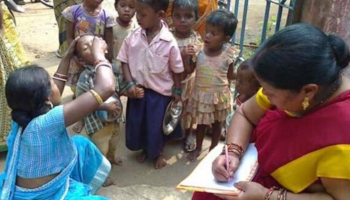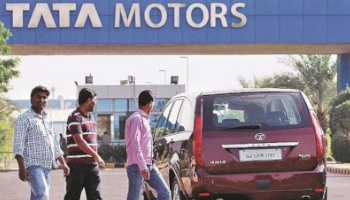Madras High Court orders calculation of insurance premiums in accordance with minimum wages
24 February 2021: Justice SM Subramaniam of the Madras High Court ruled that insurance companies are obligated to collect premiums from employers in consonance with minimum wages to ensure that rightful compensation is paid to the workers in the event of an accident. The court was hearing a plea from aggreived workers whose employer colluded with insurance company to avail an insurance policy after fixing a sum of Rs 9,000 as annual salary for 20 workers, which worked out to a meagre salary of Rs 37.50 per month per worker. The court held that insurance premiums should be fixed taking into consideration the minimum wages notified by the goverment from time to time.
Madras High Court raps BHEL for withholding wages and benefits of contract canteen workers
23 February 2021: The first Division Bench of Madras High Court comprising Chief Justice Sanjib Banerjee and Justice Senthilkumar Ramamoorthy rejected the review petition of Bharat Heavy Electrical Limited (BHEL) and ordered it to clear the dues of contract canteen workers who have been fighting legal battle for regularisation of their services since 1987. The court also found the PSU to be in contempt of earlier orders of Supreme Court of India which had earlier awarded permanency to the contract canteen workers. The court has warned BHEL of punitive action if the payments are not cleared within 2 months.
Jet Airways employee unions’ plea to review resolution plan rejected by the Mumbai Bench of NCLT
22 February 2021: A Mumbai bench of the National Company Law Tribunal (NCLT) rejected a plea filed by Jet Airways unions seeking a review of the resolution plan to know if it protected their rights. The court rejected the plea citing confidentiality provisions under the Insolvency and Bankruptcy Board of India. The resolution plan was submitted by the Kalrock-Jalan consortium last year after the debt-ridden airline was grounded and then dragged to the NCLT by its lenders while the future of its employees remains uncertain.
Rajasthan: State government amends prison rules to ends caste-based labour in prisons after High Court intervention
16 February 2021: Rajasthan amended the state prison rules and rescinded provisions that enforced caste-based labour practices inside prisons. The allocation of work of different kinds, for example, cooking, cutting hair, sweeping etc., was done along caste lines according to jail rules. Government has amended the rules stating that no one will be selected to perform different kinds of labour based on caste or religion. This came after the Rajasthan High Court took suo motu cognisance of a media report on caste practices prevalent in prisons across different states in India.
Karnataka: High Court issues notice to State and Centre regarding non-registration of domestic workers under the Unorganised Workers’ Social Security Act
13 February 2021: A Division Bench of Karnataka High Court comprising Chief Justice Abhay Shreeniwas Oka and Justice Sachin Shankar Magadum issued notices to the state and central government regarding the non-registration of lakhs of domestic workers even 11 years after the Unorganised Workers’ Social Security Act came into existence. The bench was hearing a petition filed by the Domestic Workers’ Rights Union arguing that the failure to register domestic workers under the Act resulted in lakhs of domestic workers across the State being neglected, without jobs, and without economic and social security, especially during the pandemic.
Supreme Court allows Centre and EPFO’s challenge to Kerala HC order which removed the cap on maximum pensionable salary to Rs.15,000 per month
01 February 2021: A Supreme Court bench comprising Justices Uday Umesh Lalit, S. Hemant Gupta and Ravindra Bhat allowed challenges by the Centre and the Employees’ Provident Fund Organisation (EPFO) to a Kerala HC judgement that set aside Employee’s Pension (Amendment) Scheme, 2014 that capped maximum pensionable salary to Rs. 15,000 per month. Previously, though the maximum pensionable salary was only Rs.6,500 per month, an employee was permitted to be paid pension on the basis of the actual salary drawn, provided that the contribution remitted by them was on the basis of their salary.


